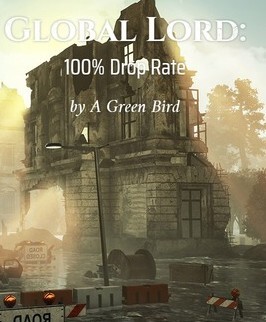Chapter 860 Compilation
Gorokhov was quite polite to Shulka, perhaps because he knew the relationship between Shulka and the Ministry of Internal Affairs, especially Shulka can be said to be a valued person by Beria. It is enough for anyone in the Ministry of Internal Affairs to put aside the disdainful gaze towards ordinary troops.
He took Shulka all the way to the headquarters of the 11th Infantry Division of the NKVD, and then introduced Shulka to Major General Saraev, the commander of the 11th Division.
As for Commissar Kirillovich, Gorokhov didn't even look at him at all, and even the officers and soldiers of the Ministry of Internal Affairs who passed by did not hide their eyes when they saw Commissar Kirillovich's red military cap. Reveal some hostility.
"Welcome, Comrade Shulka!" Major General Saraev looked a little more generous. He shook hands with Kirillovich at the same time, and said, "Welcome to you, Comrade Comrade Commissar! Please forgive me for being too busy with military affairs. I will meet you personally!"
"This is what it should be, Comrade Saraev!" Kirillovich replied, at this moment, he actually looked a little taken aback.
"Comrade Shulka!" Sarayev handed Shulka a roster and said, "This is the information of the 11th Infantry Division. As long as you are ready, training can start at any time! Before that , We have always been worried about the lack of combat effectiveness and experience of the troops, and now we have the 82nd Infantry Regiment as instructors for training, which can be said to have gone to one of my heart problems..."
Shulka felt a little fake listening to these words, especially those added later.
Even Shulka believed that if it weren't for Beria's reasons, this Saraev might not even bother to look at him.
But Shulka didn't care about these things. He flipped through the information and looked at it, and then he was stunned: "There are actually five regiments in the 11th Division?"
"Yes!" Sarayev replied: "This is the standard preparation of the NKVD army! Is there any problem?"
Shuerka turned to the last few pages to check the number of people, and found that it was not because there were too many troops that they were organized into five regiments.
In fact, the strength of the 11th Division is only more than 10,000 people, but it is organized into five regiments with less than 2,000 people each. (Note: After deducting the division headquarters and directly subordinate troops, the average strength of each regiment is less than 2,000)
After thinking about it, Shulka understood.
The troops of the Ministry of Internal Affairs were originally mainly aimed at domestic guerrillas, against reactionaries and spies, and sometimes even maintained law and order, protected traffic, searched for deserters, and so on.
Their tasks are tedious but not heavy, like odd chores.
In this case, the number of troops should also be large and small, because only in this way can the limited troops be divided into as many parts as possible to complete the corresponding tasks, and at the same time, the command will not overlap or overlap to lead to the same situation. The regiment has too many tasks to face.
The problem is that the current NKVD troops are used to fight on the front lines and not to fight guerrillas and maintain law and order in the rear.
"Comrade Saraev!" Shulka flipped through the materials again, and said, "If the 11th Infantry Division is going to go to the battlefield to fight the Germans, I suggest following the infantry's custom, that is, three regiments per division. , A regiment with three battalions!"
"Why?" Saraev was a little puzzled: "Didn't they put the same troops into the battlefield? We are used to this kind of organization!"
"If this kind of organization is used against domestic guerrillas and other tasks, there is no problem!" Shulka said: "But if it is against the enemy, you know...Infantry is usually assigned tasks in regiments, and there are also supplies , arrange cars, train carriages, etc. during transportation, if the organization of the NKVD is different from that of the infantry, the direct result is confusion or misunderstanding, which often leads to serious consequences!"
Saraev nodded suddenly, and said: "You are right, Comrade Shulka! We did encounter similar problems, but we solved them quickly. For example, the superior assigned a long defense line Let one of our regiments defend, we have to send up two regiments!"
The reason is very simple. The two regiments of NKVD are about the strength of one regiment of ordinary infantry, not to mention the combat effectiveness of NKVD troops is not strong.
"I don't think you have solved the problem, Comrade Saraev!" Shulka said.
"What's the meaning?"
"What I mean is that an overly long line of defense can't be solved simply by sending two regiments to one regiment!" Shulka explained: "If the organization of ordinary infantry is used, one regiment can be garrisoned." The defense line means that they only have one headquarters. This line of defense is under the unified command of one headquarters. I mean, the strength of the entire regiment can achieve better coordination among infantry, artillery, and tanks. But if the NKVD The two regiments of the army are stationed... Although the strength of the troops is the same or even more than that of ordinary infantry regiments, they inevitably have problems in command coordination between regiments, garrison borders, and coordination of arms, etc. wait!"
Saraev was already so surprised that he could not close his mouth half-opened. Obviously, these problems had appeared on the battlefield before, but they were easily dismissed by Saraev and others as reasons such as inexperience and insufficient training on the battlefield. neglect.
This is the case on the battlefield. To be precise, many things are like this. There is a saying that "a layman watches the fun." NKVD troops may be experts in dealing with guerrillas, but they are laymen in front-line combat.
Because they are laymen, and at the same time disdain to communicate with ordinary troops, they often find other explanations when problems arise, and they don't know where they are wrong, so they don't know about reform.
A regiment headquarters commands more than 2,000 people to fight, which is in line with the equipment and tactics of this era.
To be precise, it is the best choice determined by factors such as communication equipment, tactics, and equipment in this era... If it is modern, because the communication equipment is highly developed and the firepower is improved in all directions, the model of a synthetic battalion becomes possible.
However, NKVD abandoned this "best choice". On the other hand, communication equipment and equipment have not been improved, so of course many problems will arise.
"But..." After thinking about it, Saraev asked again: "We also need to perform other tasks besides fighting on the front line. For example, our current task in Milovei is to eliminate hostile forces. As you said, Shu Comrade Erka, it seems that such a large staff is not suitable for carrying out these tasks!"
"Indeed!" Shulka replied: "But Comrade Sarayev, these security tasks we perform in Milovy are far inferior in intensity and danger to fighting on the battlefield. Adapt to security missions and discard battlefield norms!"
Saraev nodded in agreement.
What Shulka said makes sense, because people die on the battlefield, and many people will die.
(end of this chapter)







